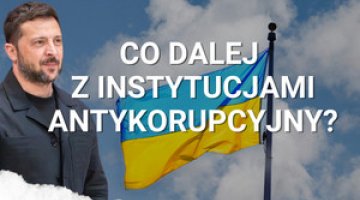Inauguration of the Crimea Platform: a successful start to a difficult process
On 23 August 2021 a Crimea Platform summit was held in Kyiv with the participation of representatives of 46 states and international organisations. The purpose of this initiative, launched by the Ukrainian government ahead of the 30th anniversary of the country’s independence, is to draw the international community’s attention to Russia’s illegal annexation of Crimea. Kyiv views this summit as the launch of a new format of talks which will enable it to put permanent political and diplomatic pressure on the Kremlin. This, in turn, is intended to guarantee the protection of the rights of Crimea’s inhabitants and to result in ending the occupation there. Plans have been made to continue the Crimea Platform in the form of regular meetings held on four levels: heads of states, foreign ministers, inter-parliamentary groups and experts. In addition, the organisers have put forward a proposal to coordinate joint actions to have the peninsula returned and to establish the initiative’s office in Kyiv and in several foreign countries.
The signatories of the Crimea Platform declaration (signed during the summit) considered the annexation of Crimea illegal and called on the Russian Federation to de-occupy the peninsula and to recognise Ukraine’s territorial integrity. In addition, the fact that Russia is violating international law (including the freedom of navigation law in the Black Sea and in the Sea of Azov) and human rights (in particular regarding the Crimean Tatar community) was emphasised. The increasing militarisation of the peninsula and the threat it poses to stability and security in the Black Sea region were also mentioned. The signatories called on Moscow to immediately release political prisoners detained in Crimea and to enable the operation of international humanitarian and human rights organisations. Should the Russian Federation continue its illegal actions, each of the signatory states will be allowed to impose additional political and diplomatic sanctions on Moscow. The list of the declaration’s signatory states is open and other states are welcome to join it in the future.
Commentary
- The launch of the Crimea Platform and the signing of the declaration is Kyiv’s first institutional initiative to make Crimea’s annexation an issue of international importance. Moreover, it is the first ever summit organised by Ukraine to be attended by delegations from all EU and NATO member states and by representatives of several international organisations (the EU, NATO, the Council of Europe and GUAM). The scale of the event, which is unprecedented in Ukraine’s recent history, tops off the efforts Ukrainian diplomats have been making since September 2020. They managed to gather a large group of participants in spite of the fact that Russia attempted to undermine the initiative and to discourage the international community from joining it; Russia also made threats regarding a possible deterioration of these countries’ bilateral relations with it. For President Volodymyr Zelensky, the summit was an opportunity to demonstrate his activity and efficiency in engaging the international community in supporting Ukraine’s independence and territorial integrity.
- According to Kyiv, the platform’s goal is to launch the process of Crimea’s de-occupation by forcing Russia to come to the negotiating table. However, achieving this will require a change of attitude from Russia (which continues to argue that the Crimea issue is closed) as well as involvement and participation from the most important Western leaders. For the time being, this condition has not been met because – contrary to Kyiv’s expectations – the leaders of the US, Germany and France did not attend the summit. These countries were represented by energy ministers (the US and Germany) and the foreign trade minister (France). The guests invited to the summit did not include, for example, the presidents of Turkey and Bulgaria. As a consequence, the Crimea Platform summit was largely a symbolic manifestation of disapproval of Russia’s occupation of Crimea. Against this backdrop, Poland, Lithuania, Latvia, Estonia, Moldova, Slovenia, Slovakia, Hungary and Finland were exceptions due to the fact that they were represented by their presidents.
- The Crimea Platform summit was held in the context of the US-German agreement signed at the end of July 2021 regarding the conditions for launching Nord Stream 2. The agreement is intended to protect Ukraine should Russia use the pipeline as a tool to blackmail it. On 22 August 2021 Angela Merkel paid a visit to Kyiv and on 31 August 2021 President Volodymyr Zelensky will visit Washington to meet with President Joe Biden. The German Chancellor offered Berlin’s diplomatic support for maintaining the transit of Russian gas via the territory of Ukraine, and reiterated Germany’s commitment to prevent Moscow from using the pipeline for political purposes. In addition, a cooperation memorandum was signed between Ukraine’s Naftog az gas company and Germany’s RWE. It envisages the production and transmission of hydrogen from Ukraine, using the support of the German partner, which is intended as partial compensation for Kyiv’s losses resulting from the launch of NS2. However, the declarations expressed by Ukraine’s Western partners fail to contain any binding commitments or to specify exact instruments to enforce them, which undermines their effectiveness in influencing the Kremlin’s actions. Combined with the absence of clear prospects for Ukraine’s membership of Western integration structures (the EU and NATO), which Kyiv has long been awaiting, this fact results in increasingly harsh criticism of the West and in mounting disillusionment with Kyiv’s cooperation with the West coming from the Ukrainian political elite and society.





